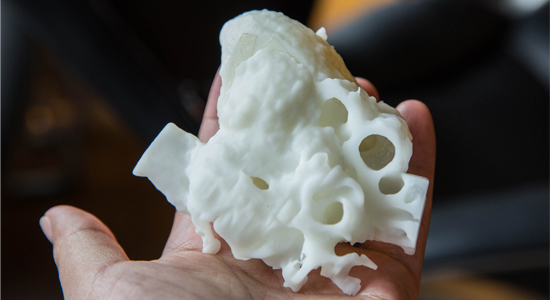You are listening to NEWS Plus Special English. I'm Mark Griffiths in Beijing.
Doctors in east China's Jiangsu Province recently used a 3D-printed heart to plan surgery for a nine-month old baby with congenital heart disease.
The baby boy, from Anhui Province, was found to have five holes in his heart chambers after birth. The child underwent surgery at Nanjing Children's Hospital on July 3 and had three holes closed. The other two were left open due to difficulty locating them accurately using a b-scan.
Planning the second procedure, surgeon Sun Jian and his team created a 3D printed model of the child's heart in order to better locate the holes. The second operation was carried out on July 21 and went smoothly.
The child is currently in a stable condition and recovering.
The surgeon said 3D technology is perfect for children with complicated heart deformities. The printed heart model can help doctors better understand the anatomical structure of the heart before operating.
He said, however, there are still obstacles. Professionals of 3D technology are strangers to medicine while doctors usually know nothing about 3D technology. The two areas need to have more exchanges.

This is NEWS Plus Special English.
China's first indigenously developed breast cancer PET scanner has been approved by the State Food and Drug Administration for clinical use.
The Institute of High Energy Physics under Chinese Academy of Sciences says the high resolution, sensitive device can be used to detect breast cancer at a very early stage, even if patients have not shown clinical symptoms.
The institute embarked on the research and development of the scanner in 2007, bringing it into clinical trials last year. The intellectual property rights of the core technology and system integration of the scanner have been registered in China.
Experts say the device will help to break the monopoly of foreign companies in China's high-end medical device market.












